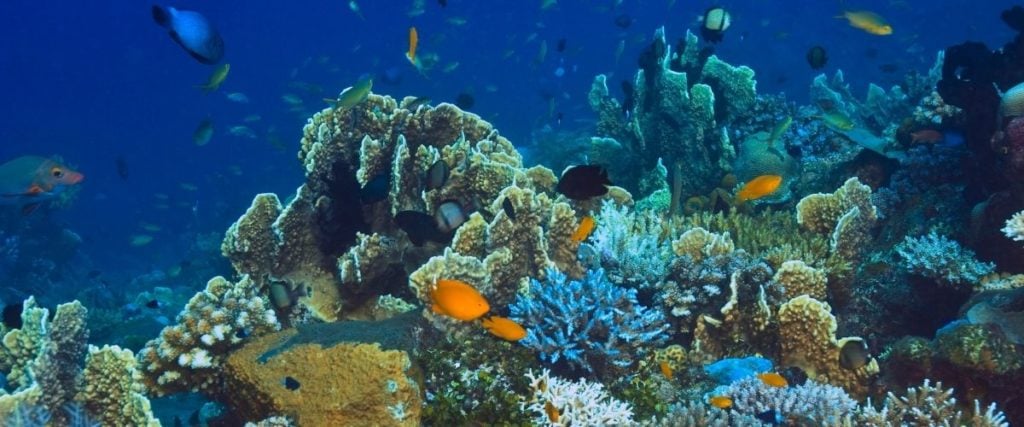Amidst Japan’s eco startup boom, native JFE Steel and Tokyo-based Innoqua team up to use steel slag to grow coral reefs.
Japanese JFE Steel Corporation and University of Tokyo grown startup Innoqua innovate in coral reef restoration through the use of recycled steel to create artificial beds for coral reefs. This partnership marks a recent increase in cross-industry collaboration, with an environmental focus, corporates offering resources where startups may be lacking.
In JFE’s headquarters, a one metre tall tank has been installed filled with colourful tropical fish and locally grown coral, simply one of many feasibility tests being conducted to research the scaleability of this project. The coral is growing on 5 cm squares of Marine Block made from slag, a byproduct of the steel production process which is then processed so coral can attach to it easily.
The tank is developed by Innoqua, using the startup’s Internet of Things (IoT) and Artificial Intelligence (AI) technology to simulate the optimal environment for coral growth and digitally analyse conditions. Internal sensors continuously analyse eight metrics required for coral to grow, such as salt, magnesium, and nitrate concentrations. This data will help to determine the species of coral most suited for growth on Marine Blocks in order to transition to large-scale breeding.
“Innoqua’s major strength is the ability to perform experiments under conditions where control is possible,” said Yasuhito Miyata, deputy director of JFE’s Slag Business Planning and Control Center.
As the climate crisis enters the global conversation, holding individuals, governments, and businesses accountable, more companies are looking for ways to offset their carbon footprint and practice sustainability. In Japan, cross-industry partnerships between corporates and startups increased by 20% between January and June 2021 totalling to 1,043, and should surpass 2020’s 1,928 by the end of the year.
Among these startups, Japan is experiencing an increase in environmental specialisations. Japan’s Ministry of Economy, Trade, and Industry (METI)’s top 50 promising startups in October, 24% focused on ESG-related fields.
“Inquires related to the environment and sustainability have clearly increased,” said Akihiko Suwa, president of NineSigma Holdings, “Companies are having trouble addressing these issues on their own, so they are more seriously considering tapping outside expertise.”
Japan’s steel industry produces over 35 million tonnes of slag annually, most of which is repurposed for infrastructure use. Innovating in different ways to use this byproduct, especially for conservation purposes, such as coral regeneration, will be crucial for next steps in creating blue carbon ecosystems where algae and other marine organisms work to neutralise carbon emissions.
JFE hopes to allocate around 10% of slag for port and marine use by 2030.
Related Articles
Japanese Companies Invest in Phosphorus Extraction From Waste for Fertiliser
Hitachi Aids Digital Transformation of Australian Banana Farm
Carbon Offsets: Everything you Need to Know About the Corporate Sustainability Solution





